We all know how important it is to save money on groceries, especially when you're trying to stick to a budget. However, typical grocery stores aren’t the only place to find great deals on food. Today we're going to explore some surprising places and ways to save money on groceries that you may not have considered before!

Jump to:
- 1. Foraging
- 2. Hunting
- 3. Fishing
- 4. Nurseries/Garden Centers
- 5. Seed Banks/Seed Exchanges
- 6. Animal Shares
- 7. CSAs
- 8. Farmer’s Markets
- 9. Roadside Vendors
- 10. Neighbors with Green Thumbs
- 11. Pick Your Own Farms
- 12. International Markets
- 13. Auction Sites
- 14. Discount Stores (e.g. Ollie’s, Marshall’s, TJ Maxx)
- More Informative Posts To Read
- 💬 Reviews
1. Foraging
Foraging can be an excellent way to save money on food while also enjoying the great outdoors. It's a wonderful way to discover local, seasonal ingredients that you may not find in your usual grocery store and expand your palate in the process. Oh, and did I mention it’s FREE?
Here in Nashville, I just scored a gorgeous haul of spring onions and wild garlic at my favorite park for walking. Dandelions, lamb’s quarters, nettle, clover, blackberries, pawpaws, chestnuts, and acorns are some of my other favorite local finds depending on the season.
Get to know your local habitat (don’t forget about your own backyard!), download an app like Seek, and enjoy the hunt. Just make sure you're knowledgeable about the plants you're picking and follow local regulations!
Oh, and if you haven’t already, start following @blackforager on Instagram. She’s ahhhhh-mazing.
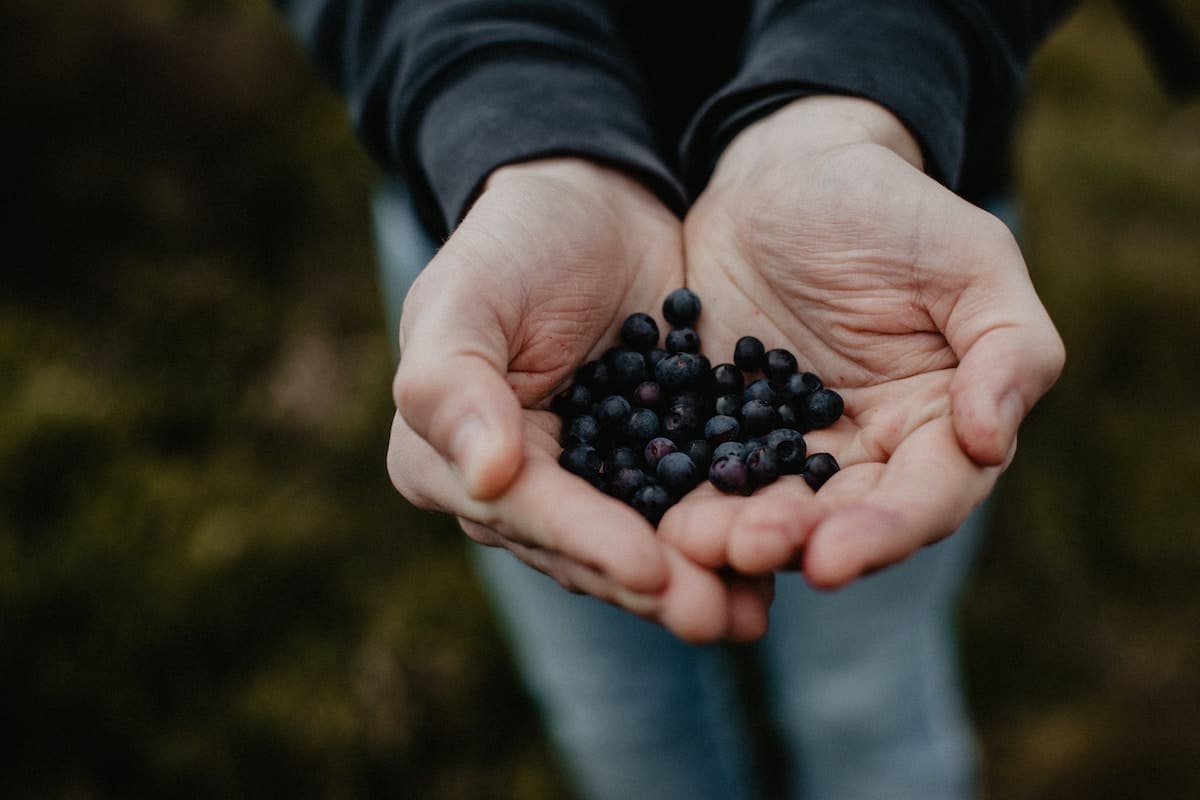
Pros & Cons of Relying on Foraging for Food
Pros: Free or low-cost access to wild foods, connection with nature, potential for unique and nutritious finds.
Cons: Requires knowledge and expertise to identify edible plants, limited availability depending on location and season, time-consuming.
Please be aware that foraging can be dangerous if not done properly. I recommend that those interested in foraging should proceed with caution.
2. Hunting
Okay, I get that this is definitely not an option for everyone. Not a gun person? Skip ahead to #3. I see you, vegetarians and vegans. Skip ahead to #4.
If you’re someone who eats meat, hunting is an incredible way to get super nutritious, organic-as-it-comes animal protein on your table — without spending a fortune. Granted, you’ll need to have access to hunting land and invest in the appropriate equipment and licenses. But if you do, you’ll be on your way to big savings in the long run.
Keep in mind, you won’t become a good shot overnight, so you’ll also need to invest time and practice into your craft. Pairing up with a more experienced hunter is a great way to learn the ropes and hang with a buddy, which Martha would say are both “very good things.” (Having a buddy to split large game meat with can also be beneficial depending on your storage situation.)

Hunting isn't just a way to get food and spend time with friends, though. It's also a great way to connect with nature and learn about the environment around you. You'll gain a deeper appreciation for your local ecosystem and the animals that live in it.
Understanding their movements requires that you slow yourself down and become more present. If mindfulness exercises are high on your “likes” list, you might end up calling yourself a hunter one day! I haven’t gotten the opportunity to do a ton of it, but from personal experience, it is a really fun way to spend a day.
For those of you who feel morally opposed, I only ask the question: wouldn’t you rather your meat come from a fully free animal who has lived a life in nature as nature intended? Of all the ways to kill an animal to eat it, that one somehow feels the fairest to me. 🤷♀️
Being present in the act of killing also makes me appreciate all of my food so much more. I can almost guarantee: once you hunt, you’ll be appalled the next time you see meat go to waste. (If food waste is high on your priority list, Tamar Adler and Lindsey-Jean Hard deserve your attention!)
Not only that, but hunting can have a positive impact on the environment too. Hunting regulations help control wildlife populations, prevent overgrazing, and promote healthy ecosystems. So by participating in hunting, you're actually supporting conservation efforts.
And get this — the meat you'll get from hunting is literally as organic as meat gets. You won't have to worry about antibiotics or growth hormones. There's also a serious sense of pride and accomplishment knowing that you've provided food for yourself and your loved ones.
If you bag a deer, you can get yourself 40-80 pounds of beautiful meat (not to mention a pretty pelt) in just one hunt, on just one day. With proper butchery and storage techniques, you can enjoy the meat from your single hunting trip for months to come.
So, why not give it a try? You just might find your new favorite hobby AND score yourself a much lower grocery bill in the process.
Pros & Cons of Relying on Hunting for Food
Pros: Ability to acquire large amounts of fresh, organic meat with serious potential cost savings (e.g. can fill a chest freezer with 40-80 pounds of the most organic meat around, all from a single hunt); potential for positive environmental effects; promotes mindfulness & communion with nature.
Cons: The cost of gear to get started requires a large upfront monetary investment; a large time investment to become good enough of a shot, learn butchery skills (or you can pay a processing fee for someone to do it for you); freezer space requirements are large for large animals like deer; limited availability depending on hunting regulations, seasons, and locations.
3. Fishing
As much as I love it, fresh fish can be pretty pricey at the grocery store. So, why not take things into your own hands and catch your own instead?
Much like hunting, fishing is a great way to spend some meditative time outdoors (which, let's be honest, we could all use more of). It can also feel less stressful than hunting if you’re just not a gun person. Just make sure you’re following proper safety recommendations.
At the end of the day, it's a cost-effective way to get your hands on some delicious seafood. With a little bit of gear and a fishing license, you can be like my brother Jake and start reeling in your own fresh catch of the day!

Pros & Cons of Relying on Fishing for Food
Pros: Access to fresh fish and seafood; potential cost savings; an enjoyable recreational activity that leads to greater connection with nature.
Cons: Upfront investment for fishing equipment and licenses; requires knowledge of fishing techniques and regulations; limited availability depending on location and seasons; potential toxicity concerns depending on pollutants in water.
4. Nurseries/Garden Centers
There's honestly nothing quite like the satisfaction of knowing exactly where your food comes from, or from harvesting your own homegrown goodies right outside your door for dinner. Check out your local nurseries and garden centers for deals on fruit and vegetable seedlings.
While it takes some practice and know-how, growing your own produce is one of the best ways to save on groceries, and it's easier than you might think.
Granted, there will definitely be some missteps along the way — I still can’t keep cilantro or dill alive to save my life! And you won’t suddenly be a master gardener eating nothing but self-grown food your first year. But you’ll learn more and more each season that you plant. Don’t you just love a good lifelong learning journey?
There are also plenty of studies showing that getting your hands a little dirty every once in a while is good for you, both mentally and physically.
If you’re a green thumb like my buddy Jess, you can often find good deals on plants that are past their prime but still perfectly capable of producing tasty fruits and veggies with the right love and care.
To get the most bang for your buck, opt for perennial produce options. These are the ones that will come back year after year with no seed saving required — they're the gift that keeps on giving!
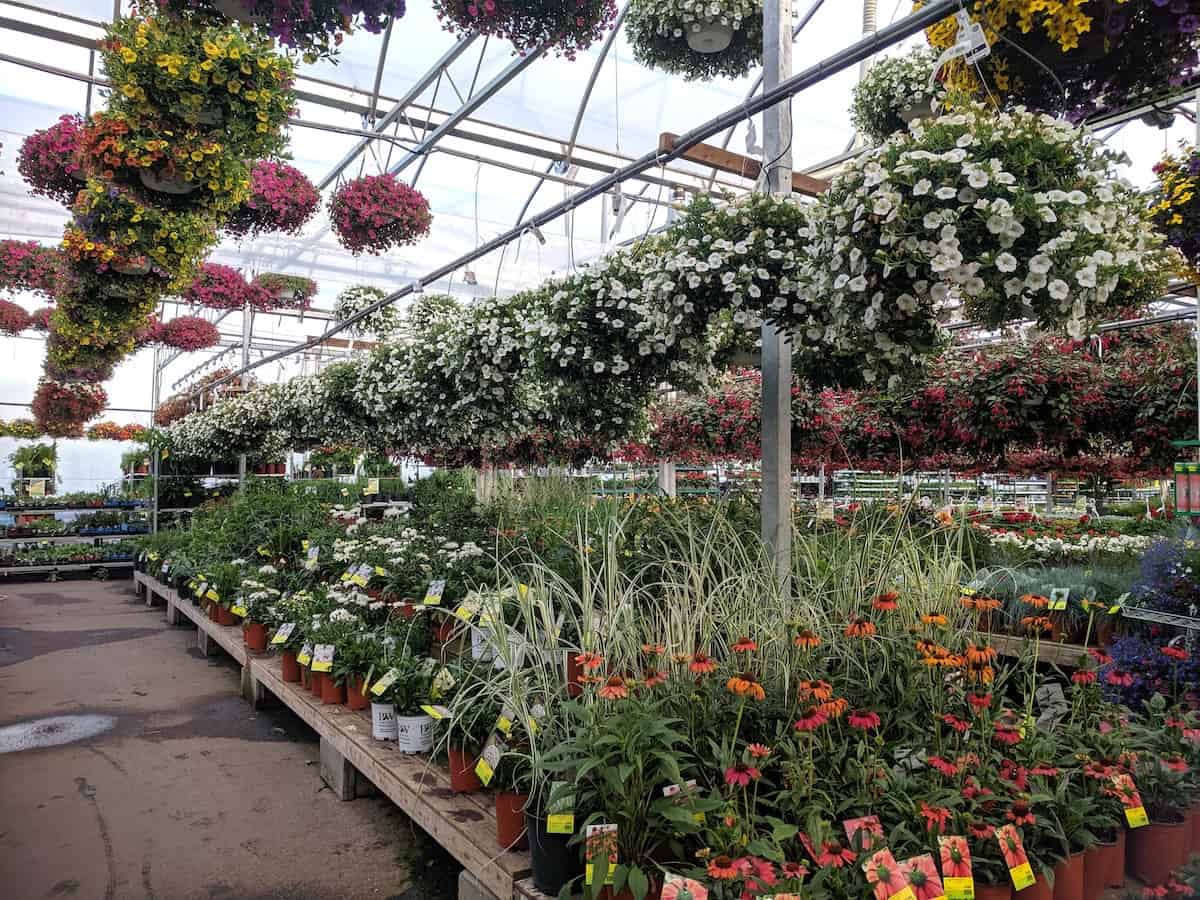
Pros & Cons of Relying on Nurseries for Food
Pros: The opportunity to grow your own food means you’re less reliant on outside sources; once your garden is built, it requires maintenance, but will keep providing if you opt for perennial plants and/or collect your seeds at the end of the season; plant diversity is good for pollinators; total control over pesticide and chemical usage; access to a wide variety of produce.
Cons: Initial investment in garden supplies can be expensive; significant effort and time investment — it takes time to learn how to garden, and for plants to mature enough to provide produce; requires space; availability will be limited to growing zone, growing season, and access to proper conditions (e.g. sunlight).
5. Seed Banks/Seed Exchanges
Seed banks and seed exchanges can also provide you with a variety of seeds for your garden at little to no cost. This is an excellent way to save money on groceries by growing your own produce from scratch.
Here in Nashville, our public library system offers a free seed exchange every year. All you need to do is present your library card, and you can take your pick of whichever tasty treats you want to try your hand at. At the end of the season, they just ask that you let the plants go to seed so you can collect them and keep the home-growing train moving.
If you have a group of friends who like to garden, you can also trade seeds among yourselves!
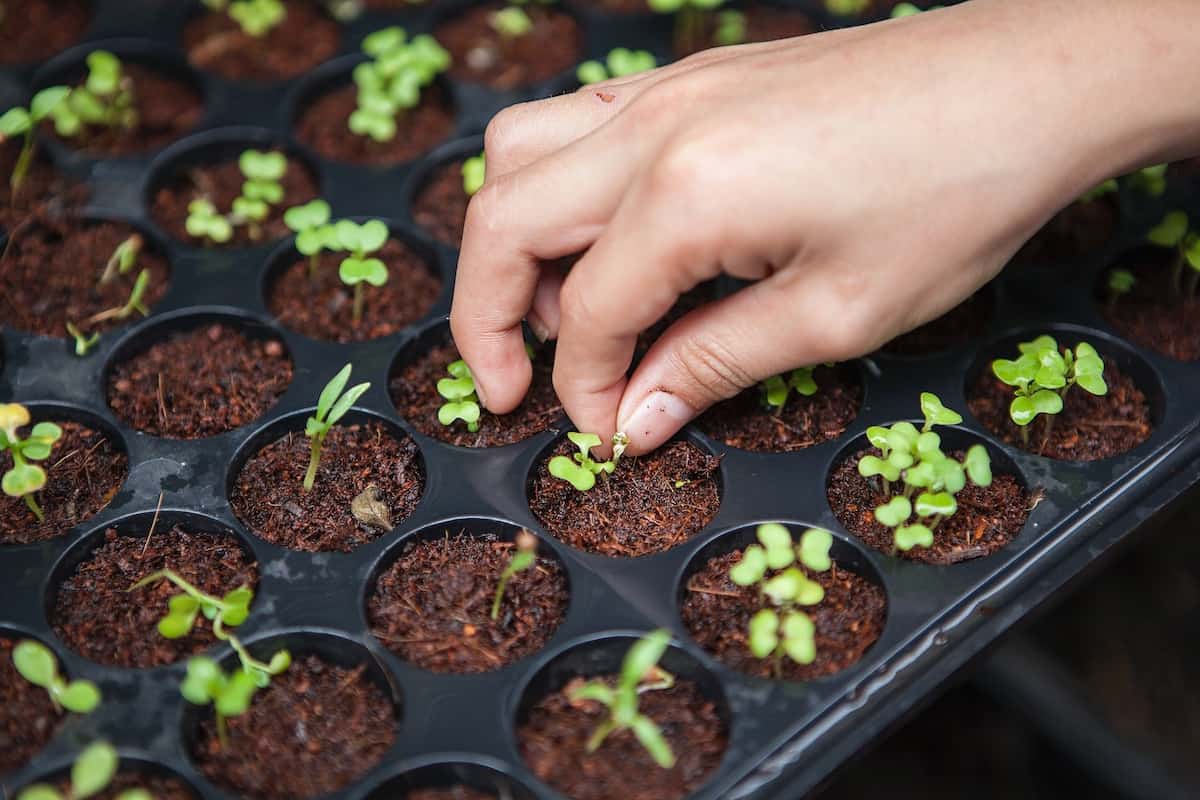
Pros & Cons of Relying on Seed Banks for Food
Pros: Access to a diverse range of seeds; preservation of heirlooms and rare varieties; potential for long-term cost savings.
Cons: Limited availability depending on location; some seeds may require specific growing conditions or expertise; initial investment in gardening supplies required; it takes time to learn and time for the plants to produce.
6. Animal Shares
Purchasing an animal share — whether it's a quarter of a side of beef, a half hog, or a half lamb, for example — is a great way to access high-quality, locally-raised meat while also supporting local farmers.
When you buy an animal share, you're buying a portion of the animal. This means that you'll have access to a wide variety of cuts. Better yet, you’ll have the peace of mind of knowing exactly where your meat came from and how it was raised.
Another benefit of purchasing an animal share is that it can be a cost-effective way to buy high-quality meat in bulk. Much like getting a CSA share, by purchasing a larger quantity of meat all at once, you can often get a lower price per pound than you would if you were to purchase individual cuts at the grocery store. Keep in mind, though, that like a produce CSA, you're not going to have as much say over which cuts you get.
Furthermore, purchasing an animal share supports small-scale, sustainable agriculture. You're supporting local businesses and helping to keep small farms viable, which helps to promote a more diverse and resilient food system and supporting environmentally friendly practices.
Finally, buying an animal share can help to reduce food waste because you're helping use up more of the animal, rather than just buying the same popular cuts over and over again. This is a great way to reduce your environmental impact while also getting more value for your money. What's not to love?
Just make sure that if you go this route, you have sufficient freezer space to handle the large influx of meat. For the greatest longevity, investing in a chest freezer is definitely the way to go.
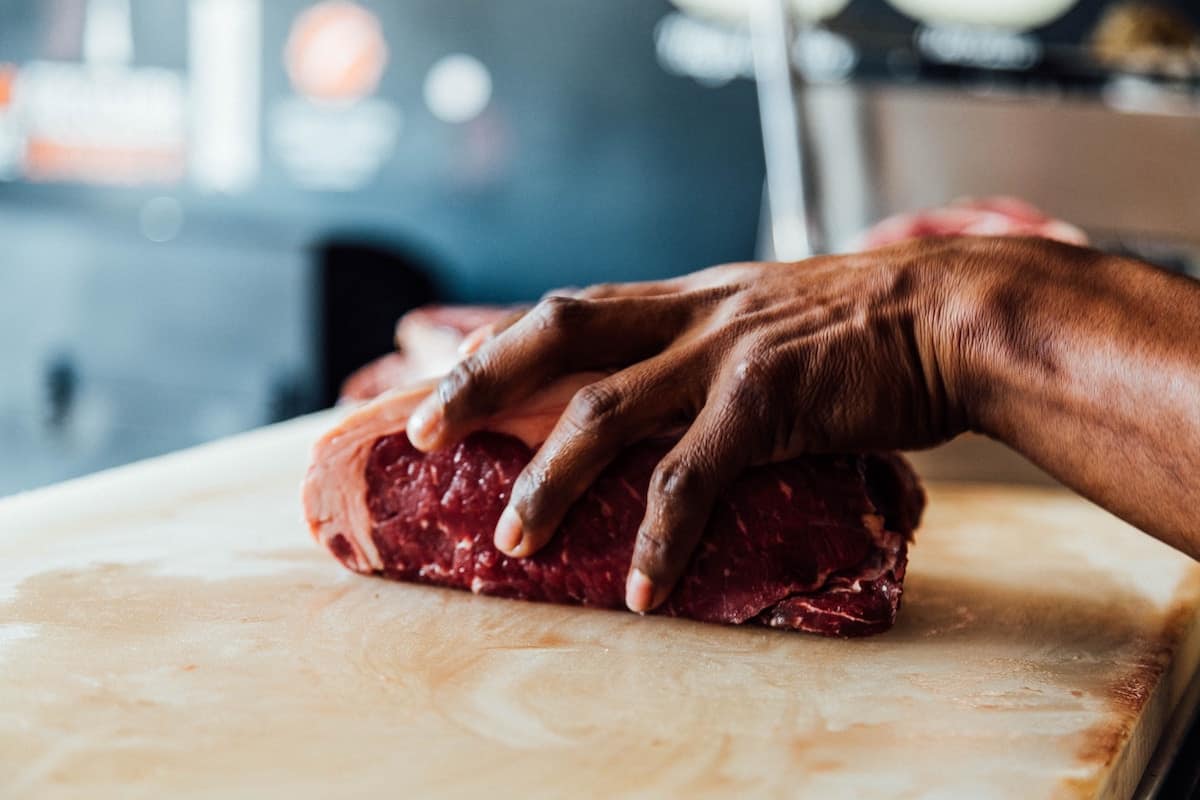
Pros & Cons of Relying on Animal Shares for Food
Pros: Access to fresh, high-quality, meat at a lower cost; support for local farmers and a local food system means you’re less susceptible to global shortages; potential cost savings in the long run.
Cons: Limited choice in terms of specific cuts; requires large upfront investment; requires a large amount of freezer space; potential for fluctuating supply.
7. CSAs
Community Supported Agriculture (CSA) is a great way to access fresh, locally-grown produce while also supporting local agriculture. CSA programs allow consumers to buy a share of a local farm's harvest, which means you'll receive a variety of fruits and vegetables throughout the growing season.
By purchasing a share of the harvest, you're buying directly from the farmer, which means that there are no middlemen or markups involved. This can help you save money on your grocery bill while also getting access to fresh, seasonal produce that's grown in your own community.
By supporting local farmers, you're helping to reduce the distance that food has to travel to get to your plate. As if that weren't enough to love, creating a more robust local agricultural system means large-scale economic disruptions like COVID or the war in Ukraine have less of a chance of impacting your ability to procure healthy foods.
CSAs also provide an opportunity to connect with the farmers who grow your food. Many CSA programs allow consumers to visit the farm and see how their food is grown. This isn't just great to promote a sense of community, it's also a super fun way to get your kiddos involved.
Finally, CSAs can provide a sense of security and stability for farmers. By purchasing a share of the harvest in advance, farmers are better able to plan and budget for the growing season. Hooray for helping each other!
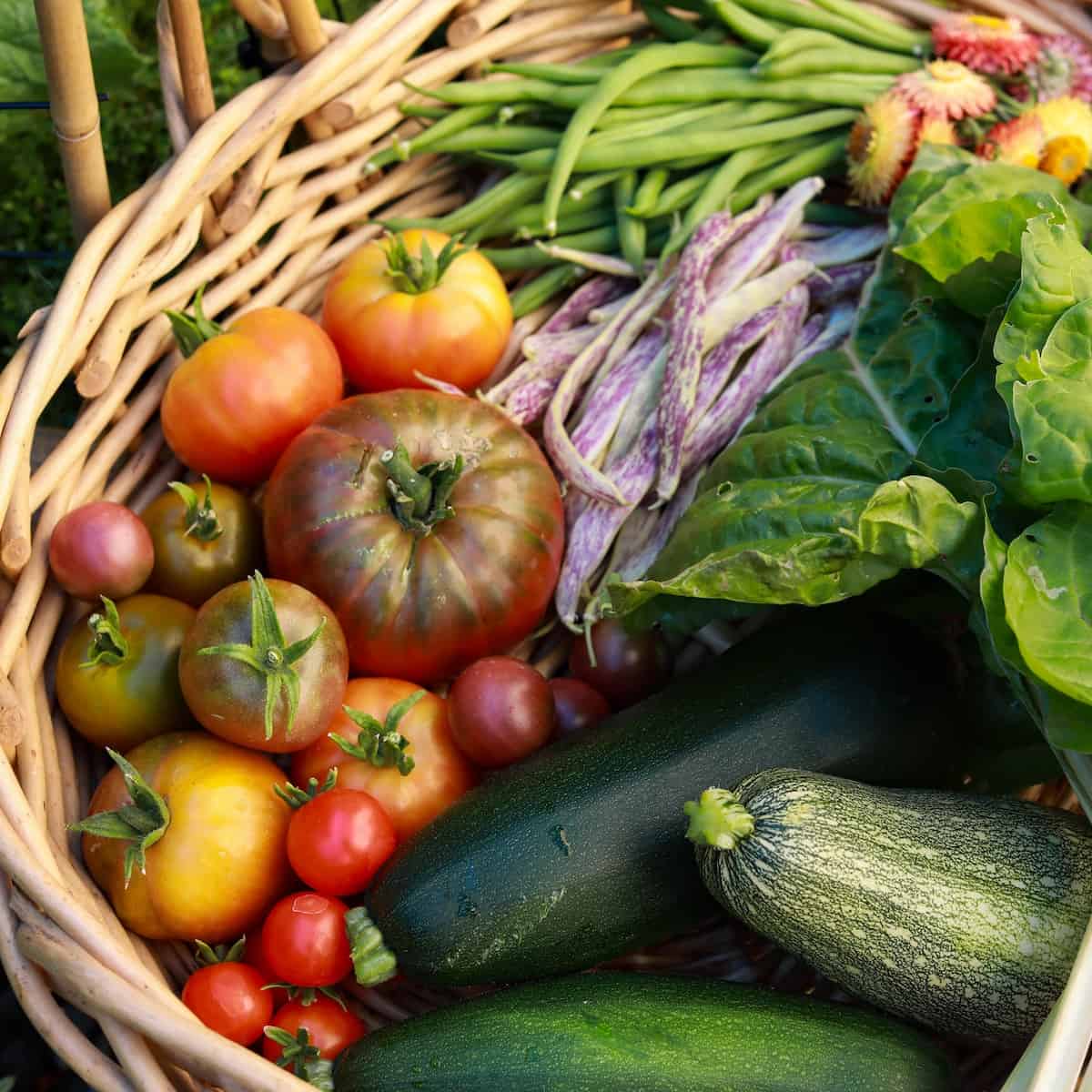
Pros & Cons of Relying on CSAs for Food
Pros: Direct support for local farmers; access to fresh, seasonal produce; potential cost savings compared to retail prices.
Cons: Limited selection depending on the farm's offerings; commitment to a specific farm and share size; may require pickup or delivery arrangements.
8. Farmer’s Markets
Many people assume that farmer's markets are more expensive than grocery stores, but that's not always the case. In fact, farmer's markets can be a great way to save money on groceries.
One of the ways that farmer's markets can be affordable is because you're buying directly from the farmers. By cutting out the middleman, farmers are able to keep their prices competitive while still providing high-quality produce.
Additionally, because the produce is often grown locally, it doesn't have to travel as far to get to the market, which can reduce the cost and environmental impact of transportation.
While it's usually not as cost-effective as purchasing a CSA share, buying directly from the farmer's markets ensures you'll have greater control over what comes home with you. If you have picky eaters to worry about, this might be a major bonus.
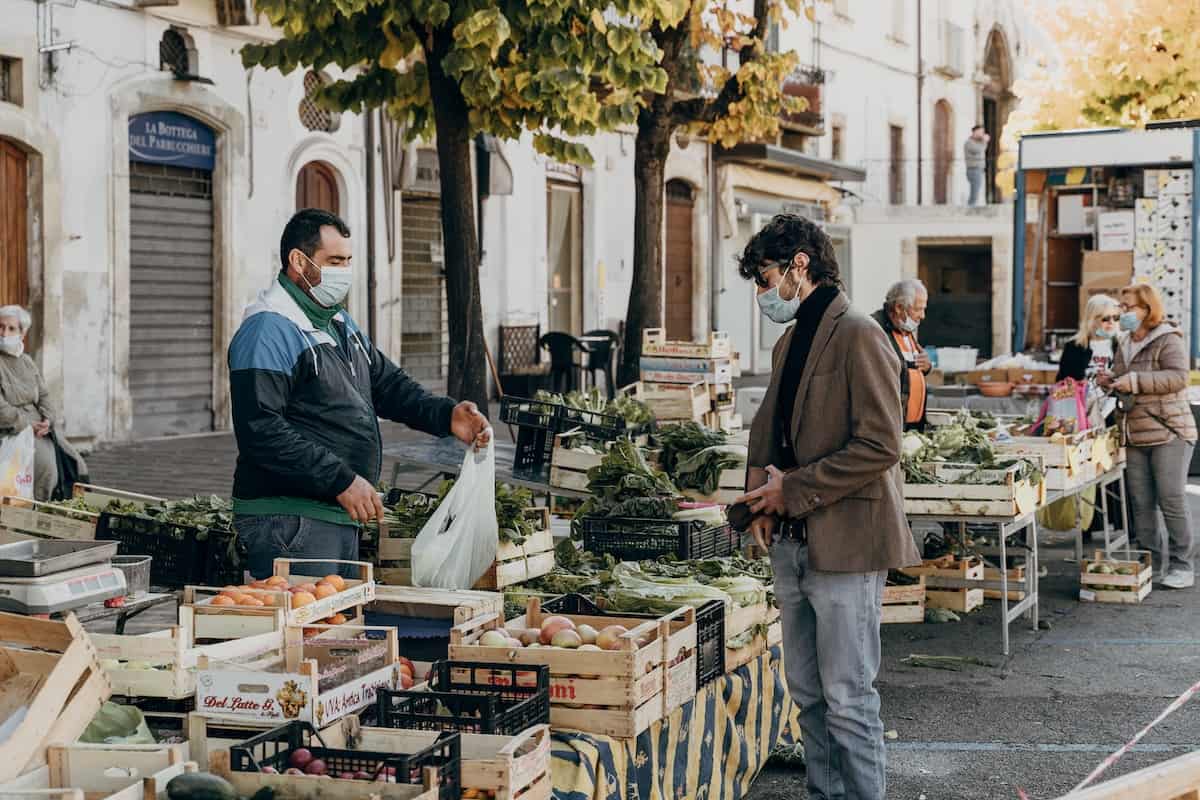
Another way that farmer's markets can be affordable is through programs that allow SNAP recipients to DOUBLE their spending power.
Many farmer's markets participate in programs like Double Up Food Bucks or SNAP Match, which provide matching funds to low-income individuals and families who use SNAP benefits to purchase produce at the market. This means that for every dollar spent on produce, participants can get an additional dollar to spend on more produce. Amazing, right?
Bonus Tip: Go late in the market — oftentimes the farmers will slash prices even further if they have a lot of veggies left over that they don’t want to haul away or are afraid of turning before they can sell them. If you get more than you were originally planning, turn to canning, freezing, and dehydrating to help you extend the shelf-life of your goodies.
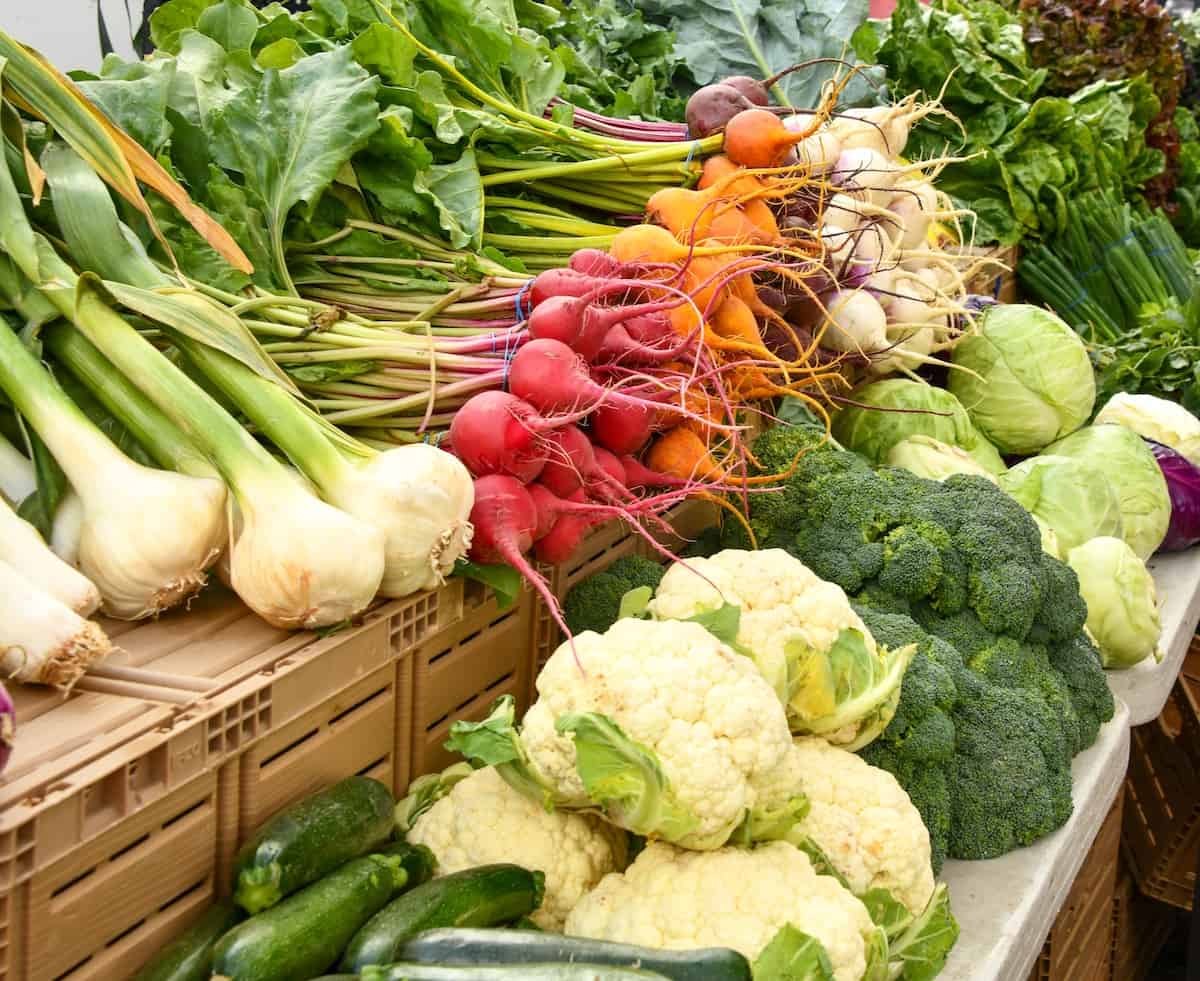
Pros & Cons of Relying on Farmer's Markets for Food
Pros: Fresh, locally grown produce is often the tastiest; offering support for local farmers helps to solidify local food systems; potential for bargaining or negotiating prices, especially at the end of market hours.
Cons: Limited availability depending on season and location; prices may not always be lower than retail; strange hours might not fit into your schedule.
9. Roadside Vendors
Roadside vendors, often located on the side of rural roads or highways, provide an opportunity to purchase fresh produce directly from the farmers who grow it. There's one just about 8 minutes from my house that sells the BEST corn, tomatoes, and peaches during the summer.
One of the biggest benefits of roadside vendors is the convenience they provide. If you're lucky enough to have a produce stand nearby, they're a great way pick up some fresh produce without having to make a special trip to the grocery store or having to fit weird farmer's market hours into your busy schedule.
And, again, like CSAs and farmer's markets, the food sold by roadside vendors is coming from a very nearby location, meaning your produce is going to be extra fresh and delicious.
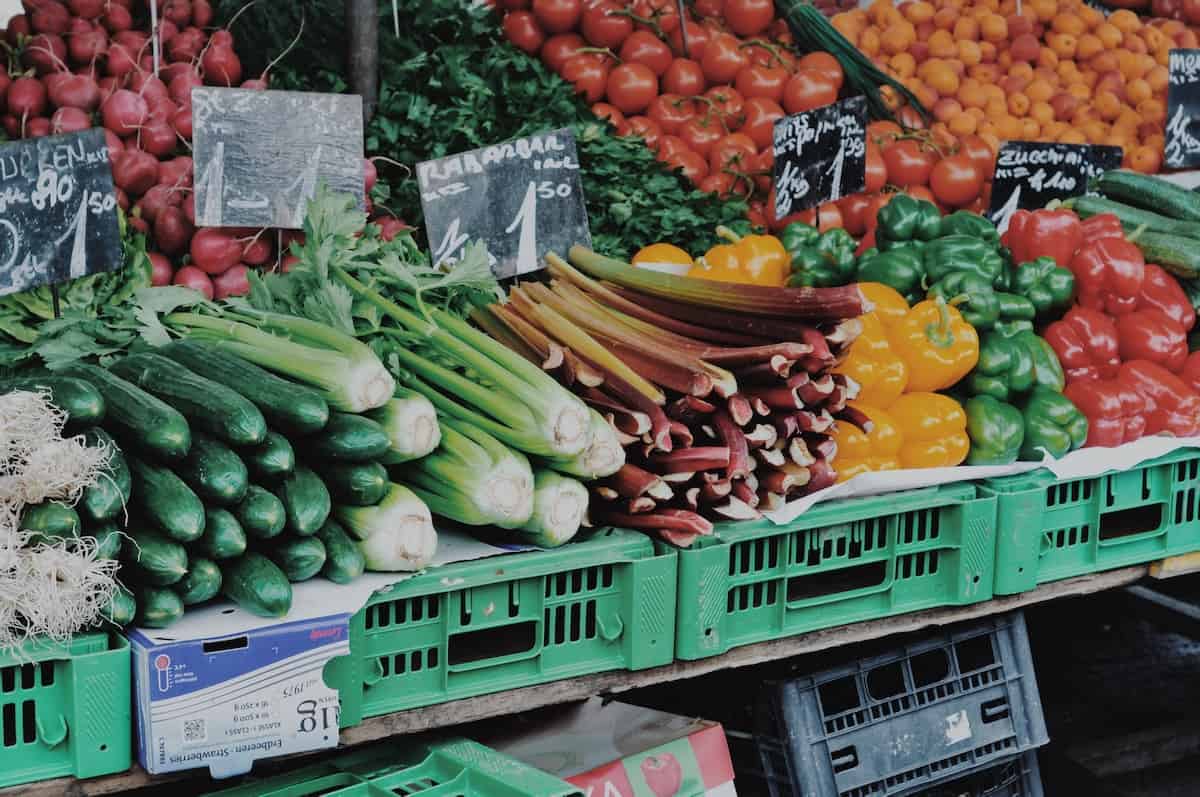
Pros & Cons of Relying on Roadside Vendors for Food
Pros: Fresh, locally grown produce; support for local farmers; potential convenience if it’s on your typical driving route; potential for lower prices compared to supermarkets.
Cons: Limited availability depending on location and season; limited selection; may not always offer certified organic options (though to be fair, certification is expensive, so it’s out of reach for many small farmers who follow organic growing practices)
10. Neighbors with Green Thumbs
It's not uncommon for people who have a passion for gardening or farming to share their bounty with their neighbors, and this can be a wonderful opportunity to access fresh, healthy food.
If you have neighbors who have green thumbs, they may be willing to share some of their homegrown produce with you. This can be a great way to try new fruits and vegetables that you may not be able to find at the grocery store.
People who are growing backyard gardens usually only raise what they themselves like to eat, so be sure to ask questions and see if they have any fun recipes to share!
Additionally, because the produce is often grown locally, it's likely to be fresher and have a better flavor than produce that has been shipped from far away.
Similarly, if you have neighbors who raise chickens, they may be willing to share their eggs with you. Fresh eggs from backyard chickens are so much more flavorful and nutritious (not to mention beautiful!) than eggs from commercial egg-laying operations. And because you know who is raising them, you can be sure that they're being treated well and fed a healthy diet.
Finally, having neighbors who are passionate about gardening or farming can be a great way to learn new skills and build a deeper appreciation for where your food comes from. You can ask questions about how the produce is grown or how the chickens are raised. If you’re interested in trying your own hand at gardening, take it from me: most gardeners LOVE to share their knowledge!
Just make sure you're being a good neighbor in return — try your hand at making something with your free bounty to share with your benefactor (like fresh jam, quickbreads, or muffins). Or, offer to feed their chickens and muck the henhouse when they're out of town — if you do, you’re pretty much guaranteed a steady supply of fresh eggs AND friendship.
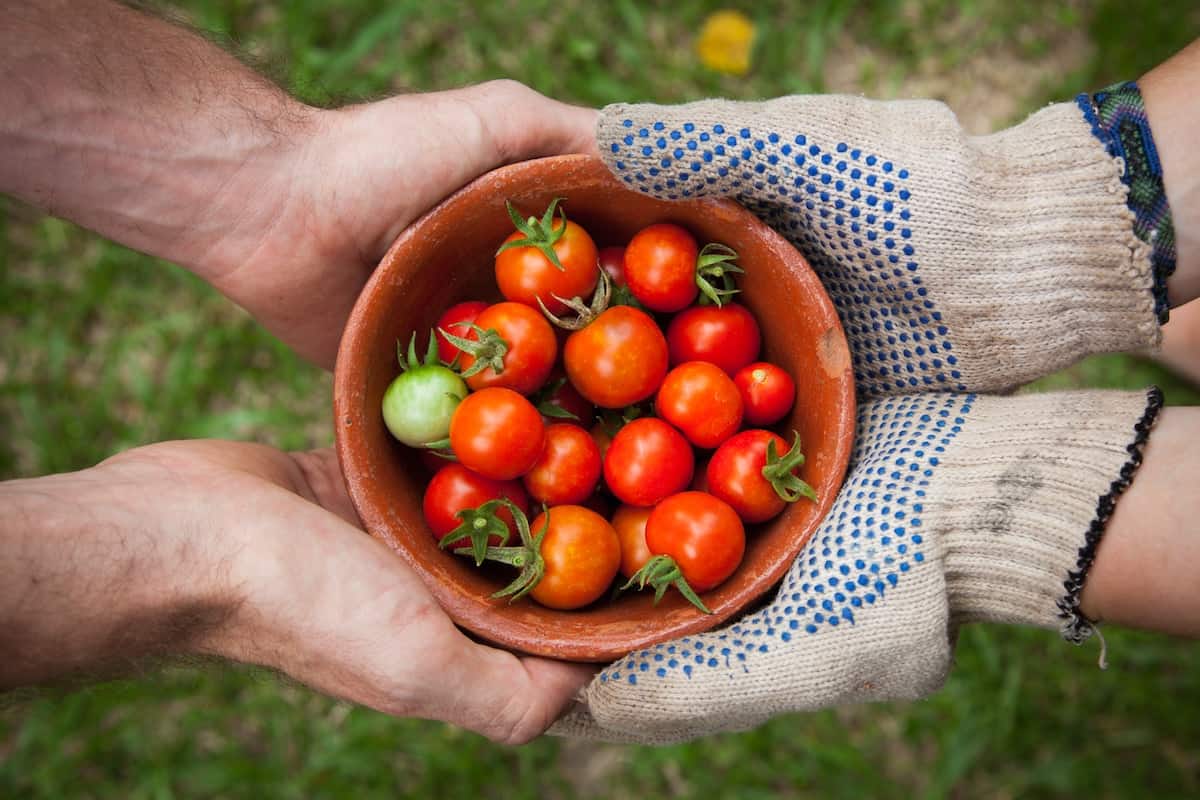
Pros & Cons of Relying on Neighbors for Food
Pros: Sharing excess produce or plants helps reduce food waste; building community connections is good for the soul; splitting resources means a greater potential for variety in exchanged goods.
Cons: Reliance on availability and generosity of neighbors; limited to what neighbors grow; inconsistent supply.
11. Pick Your Own Farms
Pick your own farms are a fun and interactive way to access fresh, locally grown produce while also getting some exercise and enjoying the outdoors. The idea here is for consumers to pick their own fruits and vegetables directly from the fields.
One of the biggest benefits of Pick-Your-Own farms is the quality. Because you're picking the produce yourself, you can be sure that it's literally as fresh as can be (and hasn't been sitting on a truck or in a warehouse for days).
Another benefit of Pick-Your-Own farms is the cost. Because you're doing the labor yourself, it's often much cheaper than what you'd find at the grocery store.
Finally, these farm outings are a fun activity for families and friends! It's a great way to get outside, enjoy the fresh air, and spend some quality time together. Plus, it can be a great way to teach kids about where their food comes from and how it's grown.
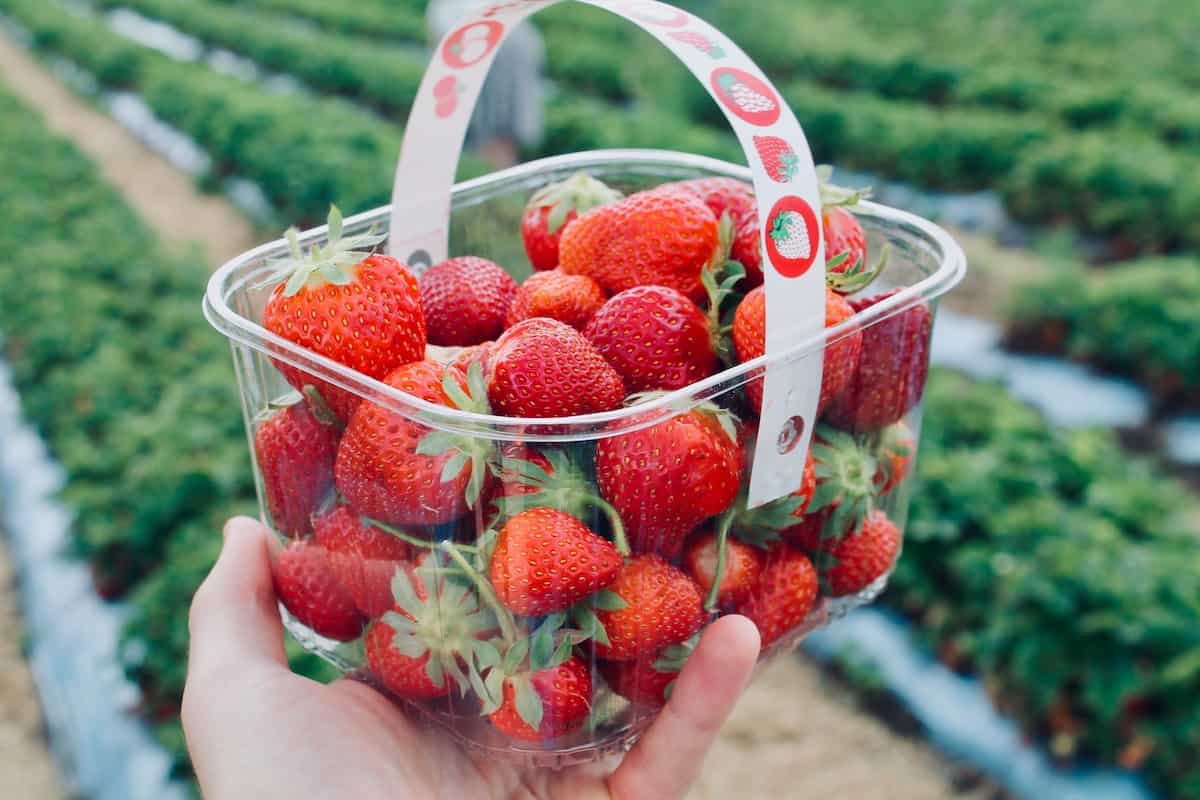
Pros & Cons of Relying on Pick-Your-Own Farms for Food
Pros: Farm-fresh produce at lower prices than retail; enjoyable outdoor activity for families; access to a variety of fruits and vegetables.
Cons: Limited availability depending on location and season; time-consuming; requires you to be able-bodied; transportation required.
12. International Markets
International markets are a great place to find affordable and unique food items that you might not be able to find at your regular grocery store. While they might feel a bit intimidating at first, once you get the hang of it, I'm almost certain you'll fall in love.
One of the best things about shopping at international markets? You can find tons of affordable starches like rice, noodles, and legumes. Better yet, they offer a much wider variety of nearly everything. From jasmine, basmati, and sushi rice, to udon, soba, or rice noodles, you'll find aisles upon aisles of inexpensive meal-bulkers at super affordable prices.
Not only are pantry staples like spices, soy sauce, and vinegar likely to be cheaper at international markets, but there's also just so much more to choose from. Just remember that most of the seasonings are sold in bulk plastic packaging, so make sure you're prepared with spice jars at home.
If you're into variety, don't overlook the produce, prepared foods, and snack sections. Joe and I love to go on dates just to pick out fun new foods to try!
Finally, I love that many of the international markets that I've ever shopped in are family-owned & operated, and the staff is often really knowledgeable and passionate about the foods and ingredients they carry. I've been lucky enough to receive tips and advice on how to cook with new ingredients and even some family recipes. If you're into grocery shopping as an experience, this one can't be missed.
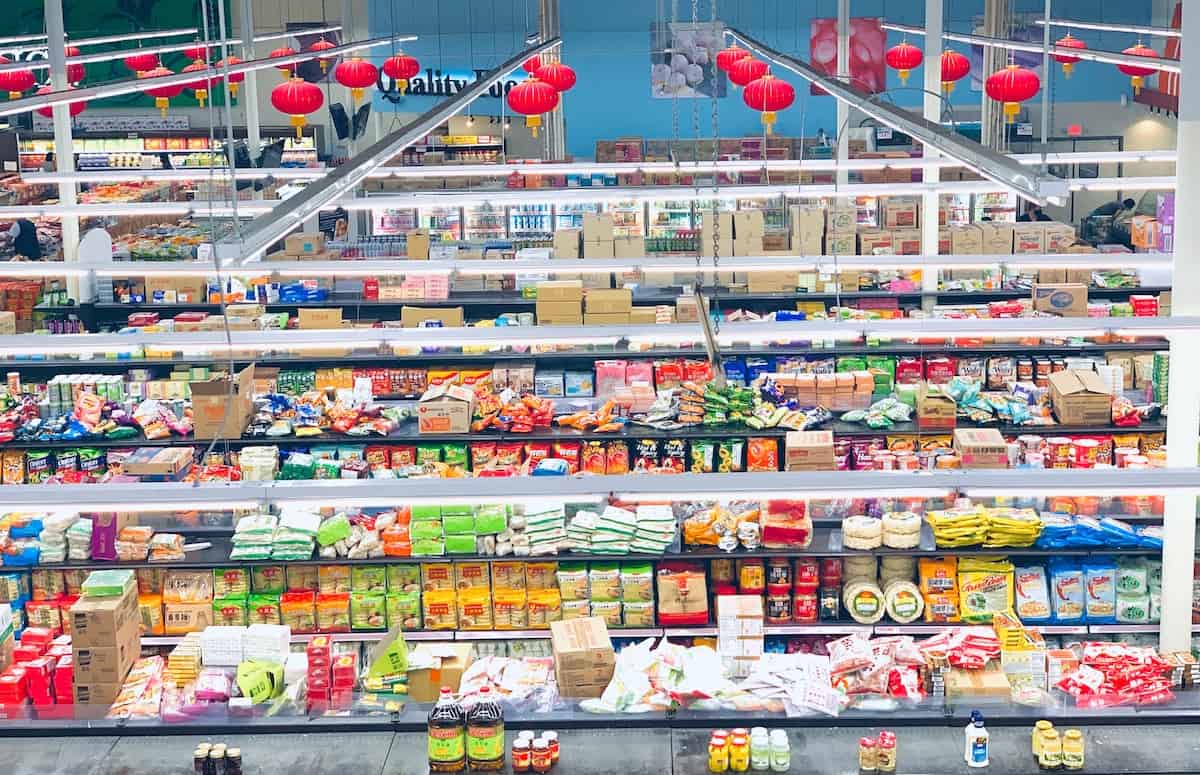
Pros & Cons of Relying on International Markets for Food
Pros: Access to a wide range of ethnic and specialty ingredients; potential for lower prices on certain items; culinary exploration is fun.
Cons: Can feel intimidating and unfamiliar; may not have all of your normal pantry staples.
13. Auction Sites
One cool thing about auction sites is that you can often find groceries listed in bulk quantities. (Think cases or even pallets of food.) Buying in bulk can save you a lot of cash compared to buying individual items at a regular store. Of course, it's only worth it if you have enough storage space and you actually consume those items regularly.
Auction sites are also known for having clearance and overstock sales. Sometimes sellers want to get rid of groceries quickly, maybe because they're close to their expiration dates, the packaging is changing, or a particular package is mildly damaged. That means you can snatch up some great deals on perfectly good food items. For example, I recently scored 10 pounds of oats for $2 and a case of my husband's favorite $3/can energy drinks for less than $1 apiece. It's like finding hidden treasures in the grocery world!
That said, there are a few things to keep in mind. Quality is important, so be sure to read the product descriptions (sometimes products will be opened or missing some of the package), check seller ratings, and look at customer feedback to make sure you're getting the good stuff. And remember to consider the shipping costs, fees, and any other additional charges that might affect your overall savings.
Oh, and one more thing—stick with reputable auction sites and sellers. Check their ratings and reviews, so you don't end up with subpar products or, worse, fall for a scam.

Pros & Cons of Relying on Auctions for Food
Pros: Potential for competitive pricing and bulk purchasing options; access to specialty or hard-to-find items.
Cons: Shipping costs and potential for additional fees; requires careful research and verification of sellers; limited to available listings.
14. Discount Stores (e.g. Ollie’s, Marshall’s, TJ Maxx)
With a little exploration and a keen eye for deals, you can take full advantage of the money-saving opportunities at discount stores like TJ Maxx, Marshall's, and Ollies.
When grocery stores or large food distributors have surplus items, discount stores often scoop them up at a lower cost and pass those savings on to you. That means you can find groceries at seriously discounted prices compared to regular supermarkets.
These discount stores also offer brand-name groceries at lower prices so you can snag popular brands and specialty items without breaking the bank. For example, I recently got a jar of fancy Fixx & Fogg nut butter for just $2.99 (normally they for for $10). I also exclusively shop for my coffee syrups at discount stores where I can get bottles of Jordan's Skinny Syrups for $2.99 vs $8-10 at the store.
And hey, if you're into discovering unique and specialty food items, discount stores have your back. They sometimes partner with local or small-scale producers, which means you get to explore new and interesting food options at lower prices. It's like going on a culinary treasure hunt!
Now, I should mention that discount stores might not have the same vast selection of groceries as regular supermarkets. Just be open-minded and flexible, and you're likely to uncover some great finds.
One thing to keep in mind is that since discount stores carry surplus and closeout items, it's always a good idea to check expiration dates and the overall quality of the products. Most of the time, things will be perfectly fine, but it's better to be safe than sorry when it comes to freshness.
Lastly, not all discount stores have a grocery section, so make sure to check if the specific store you're visiting carries groceries. And remember, availability may vary from store to store, so don't get discouraged if you don't always find the exact items or brands you're looking for.
For example, there are usually several flavors of coffee syrups on sale, but they might be considered out of season — when I went in December, we loaded up on 3 variations on pumpkin spice and a maple-flavored variety since they were clearing out fall inventory to make room for more wintry flavors.
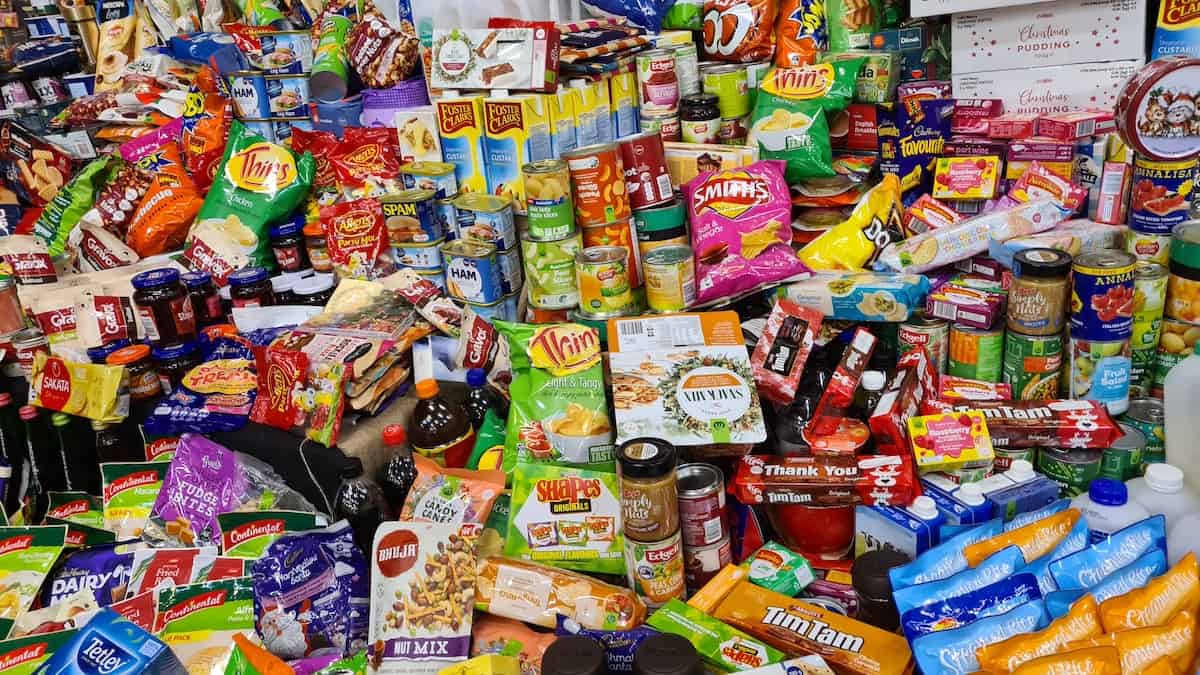
Pros & Cons of Relying on Discount Stores for Food
Pros: Lower prices on brand-name groceries, surplus, and overstock items; potential for unique finds; seasonal promotions.
Cons: Limited selection & variable availability of goods; quality and expiration date concerns; potential for impulse buying.

And that's a wrap on our exploration of various ways and places to save money on groceries! I hope you found these insights helpful and inspiring. Now, it's your turn to join the conversation!
I’d love to hear from you. What are your favorite ways and places to save money on groceries? Have you discovered any clever strategies or hidden gems that we didn't mention? Share your tips, tricks, and experiences in the comments below. Let's help each other become savvy savers!
Remember, every penny saved adds up, and together, we can make grocery shopping more budget-friendly and exciting. Happy shopping and happy savings, everyone!
More Informative Posts To Read
- 21+ Egg Substitutes & Egg Replacements For Cooking, Baking, Breakfast, & More!
- The Food Justice Library
- Food Insecurity - Organizations Working Toward Change
- Food Workers — Fighting Systemic Inequality In The Food System
For more yummy recipe ideas delivered straight to your inbox, sign up for my email newsletter! I promise to never sell your information, plus you'll get a FREE Grocery Guide loaded with tons of tips, tricks, and printables to make being the CFO (Chief Food Officer) of your family a little easier. You can also follow my kitchen adventures on Instagram, Facebook, or Pinterest.

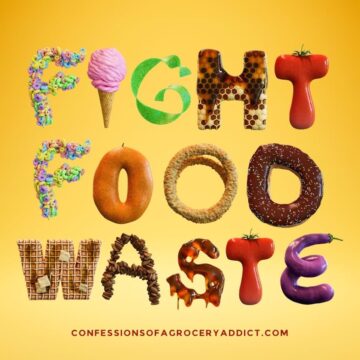
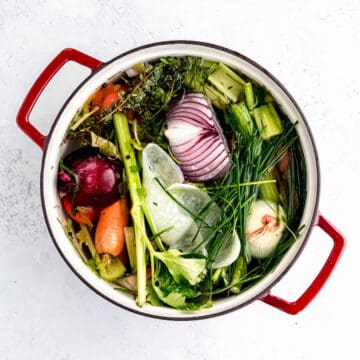
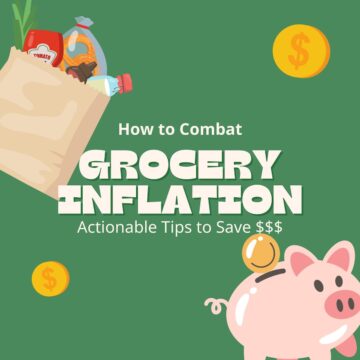
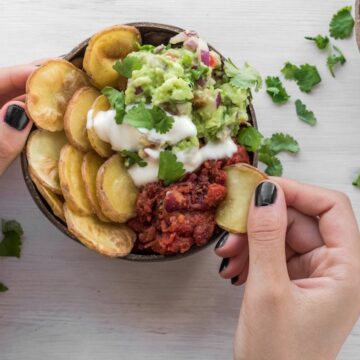
Comments
No Comments